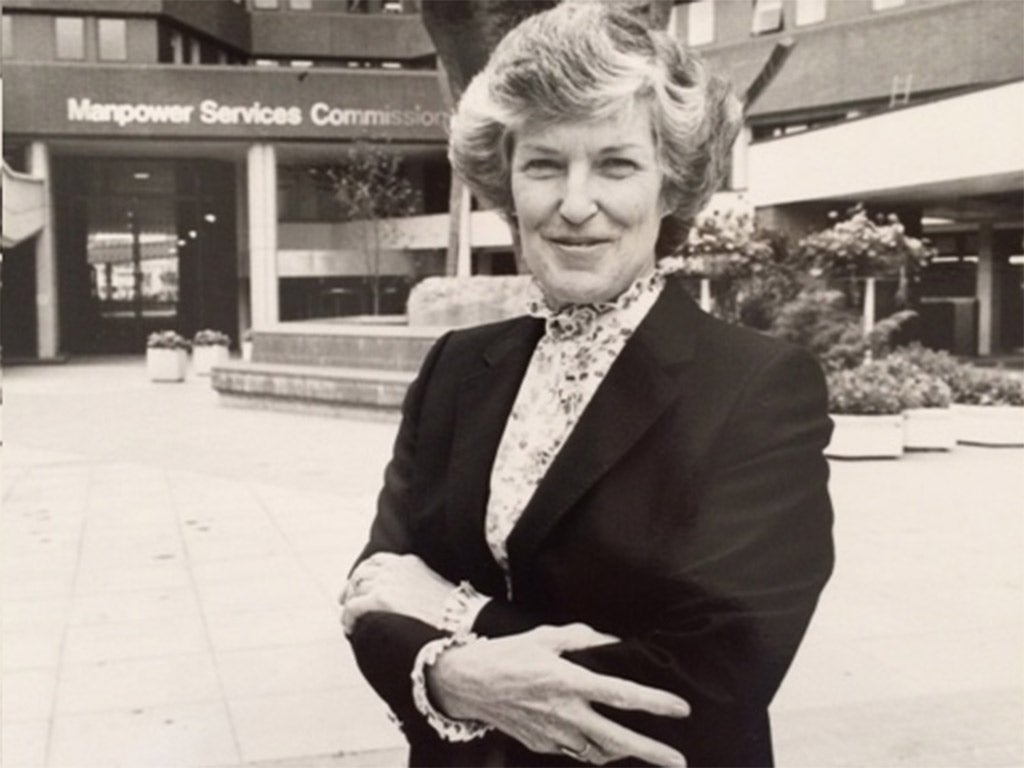Jean King: Civil servant who rose to senior posts in the Ministry of Labour
As one of relatively few women in the senior ranks of the civil service in the 1970s, King was an important role model for many who came after her

Jean King, who has died aged 92, had a distinguished civil service career. She was a significant figure in the development of public employment services in Britain, and the first woman to play a leading role in the Ministry of Labour's industrial relations service (the forerunner of ACAS), becoming the senior official in the West Midlands region at a time of serial industrial relations unrest. As one of relatively few women in the senior ranks of the civil service in the 1970s she was an important role model for many who came after her.
King was born in 1923, the daughter of Edgar Bishop, for many years a trustee and editor of Hymns Ancient and Modern, and his wife Elsie. She read social sciences at University College London, then in wartime exile in Cambridge. A fall through a stage trapdoor during theatricals broke her back and she spent many months in plaster, but characteristically did not allow that to prevent her completing her degree.
After a spell at the LSE she worked in personnel management in the private sector, a popular route then for bright women who were routinely excluded from the graduate schemes that led to top management posts. In 1950 she joined the Ministry of Labour (later the Department of Employment) as a personnel management adviser and industrial relations officer, and after 15 years on the front line in the West Midlands, the most challenging of the Ministry's regions, was promoted to run its industrial conciliation service.
It was unheard of for a woman to obtain such a post; but the Ministry had realised that King had extraordinary skills in opening the dialogues essential to resolving the frequent disputes in the West Midlands engineering industry. She was soon on good terms with all the trade union leaders who mattered, understanding that personal contact was critical to achieving conciliation. Her elegant and immaculate appearance made her an unusual presence in the engineering works and trade union offices of Birmingham and the Black Country; she maintained that elegance throughout her life.
Promotion to assistant secretary in 1965 took her via the Office of Manpower Economics and the Pay Board to Departmental Headquarters and in 1976 to the Manpower Services Commission, a tripartite body created by the Heath government to run the country's employment and training services. It was a time of major modernising initiatives and as deputy chief executive, and from 1979 chief executive, of the Employment Services Division King played a major role in the reform of the public employment service.
This was a backwoods until the early 1970s, when officials and (some) politicians began to recognise the value of active manpower policy as pursued in countries like Sweden. A new job centre service, with modern branding, replaced within a few years the old, grim employment exchanges. Job centres were deliberately distanced from the administration of unemployment benefits, reflecting the view that unemployed people could best be helped into work if decent vacancies were on offer, and that was best secured through a clear focus on servicing the labour market.
King's own experience supported this view, but it was neither understood or welcomed by the Thatcher government, which was more interested in the application of benefit sanctions and seeing the service as a luxury that competed with private agencies. It was a time of unusual tension between ministers and the MSC, especially from 1981, when Peter Morrison became a junior minister, with a remit from Margaret Thatcher to “sort out” the MSC.
Officials were caught in the middle, but King managed this uncomfortable situation with some finesse. Nevertheless, large staff and budget cuts led to the slowing of computerisation designed to improve efficiency, and the abolition or curtailing of carefully nurtured specialist services, especially those for disabled and special-needs clients, which were targeted by ministers. Her contribution to the service, and her distinguished career, did not ultimately receive the recognition they deserved.
Jean King “retired” in 1982. There were five years as chairman of the Kent Area Manpower Board, and later the chairmanship of Fareham Good Neighbours, a befriending scheme. These ran alongside an Open University degree in history (first class honours), training as a bereavement counsellor, voluntary work “driving old ladies to the lunch club” – she was older than many of them – and some years carefully observing her own reactions to ageing, as a contribution to a psychological research programme (“studying the effects of ageing” was one of the recreations she listed in Who's Who).
She supported her first husband, Bob Collingridge, through a long period of illness until his death in 1994, after 43 years of marriage. In 1996 she married JEA (Peter) King, who died in 2000.
VALERIE BAYLISS
Jean Mary Bishop, civil servant: born 9 March 1923; married 1951 Albert Robert Collingridge (died 1994; one daughter), 1996 John Ernest Agar King (died 2000); died 26 September 2015.
Join our commenting forum
Join thought-provoking conversations, follow other Independent readers and see their replies
Comments